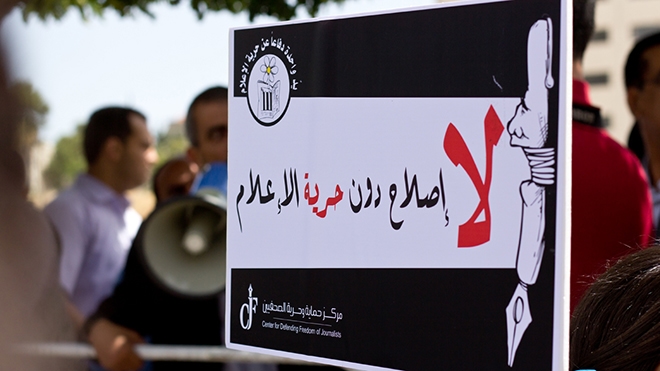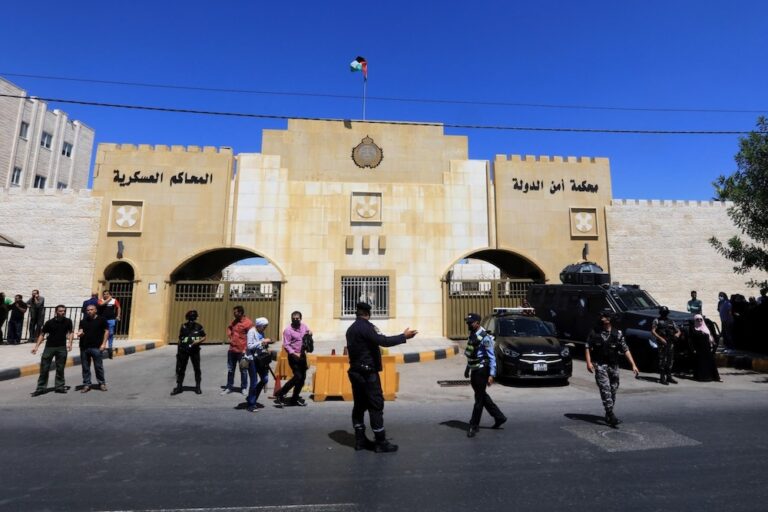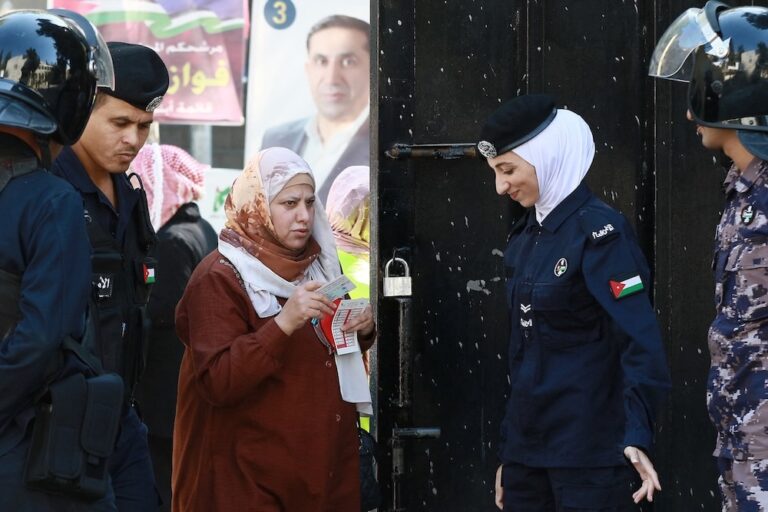The Jordanian government began, on 2 June 2013, to block over 200 news websites for failing to register and obtain licenses under a recently amended and controversial Press and Publications Law.
In a move long-dreaded by Jordanian Internet users and digital rights activists, authorities in the kingdom announced plans on 2 June 2013 to block over 200 news websites for failing to register and obtain licenses under the recently amended Press and Publications Law, previously known as the Censorship Law.
Access to several of the sites has already been impeded as local Internet service providers (ISPs) were ordered to begin blocking unregistered websites after receiving a memo by Fayez al-Shawabkeh, head of the government’s Department of Press and Publications.
The mandatory registration was introduced as part of the amendments made to the Press and Publications Law back in September 2012, which, according to local media organisation 7iber, included articles that would hold online news sites accountable for the comments left by their readers, prohibiting them from publishing comments that are deemed “irrelevant” or “unrelated” to the article. Online news sites would also be required to archive all comments left on their servers for at least six months.
“Jordan claims that it is simply regulating online journalism and upholding journalistic integrity, but in reality these amendments give authorities a tool to punish Jordanian journalists for what they write,” said Sarah Leah Whitson, Middle East director at Human Rights Watch.
The human rights organisation also noted that Articles 48 and 49 of the amended law give the Press and Publications Department director the authority to block websites that are either unlicensed or deemed to be in violation of any law, and to close the website’s offices without providing a reason or obtaining a court order. The sites may then challenge the decision in the Supreme Court of Justice.
According to Freedom House, the requirement that news sites must obtain government approval reinforces self-censorship and places a disproportionate burden on editors and administrators to police controversial comments posted to their sites. Several prominent news sites have recently turned off their comments sections as a result.
Human Rights Watch reported that many of the sites listed in the memo prepared by Shawabkeh’s office refused to obtain a license by the 17 January 2012 deadline given to them, as a show of protest against what they see as intrusions into their independence and freedom.
In the last decade, the country’s growing pool of online news sites have achieved unprecedented popularity. Some news sites including Sarayanews, one of the websites mentioned in the memo, have gained a larger following amongst the country’s two million Internet users than even the biggest mainstream print newspapers, Al Rai and Ad Dustour.
In light of this shift, the new measures can be seen as an attempt to extend government censorship from traditional media to the online sphere.
“The idea of licensing news websites is contrary to the Jordanian constitution, international commitments, and public statements by the King and government,” said Daoud Kuttab to the Committee to Protect Journalists. Kuttab is founder of AmmanNet, also one of the sites listed in the memo, and a recipient of CPJ’s 1996 International Press Freedom Award.
“It’s also a punishment to the Jordanian public, because they are blocking these sites only in Jordan while the rest of the world can see the contents of these websites,” he added.
Jordan’s official news agency quoted a statement by the press and publications department arguing that the blocking is not intended to restrict freedoms but rather to “organise the work of these websites, protect them, and keep from allowing those from outside the profession to inhabit the label of journalists…”
According to a report by Index on Censorship, the amendment applies not only to Jordanian sites, but to any site that can be viewed from inside Jordan. It also points out, given the flexible and rather vague language of the law, that there appears to be few guarantees that the government won’t block a site arbitrarily or simply amend the law to block sites that it wishes to target.
The website arabianbusiness.com reports that “some of the more prominent pages that have apparently been blocked by the government include Qatari news portal Al Jazeera, Time Out magazine, erotic publication Penthouse and the site of the Muslim Brotherhood in Jordan.”
The decision comes just two weeks after the International Press Institute’s World Congress, which was held in Amman 19-21 May and featured Jordan’s Prime Minister Abdullah Ensour, who praised the role of the media and affirmed the importance of press freedom.
According to the Electronic Frontier Foundation (EFF), a leading organisation in the defense of digital rights, the timing chosen to implement the decision has led some to suspect authorities deliberately waited until after the congress, to minimise global scrutiny.
However, Jordanian activists and bloggers are known to stand their ground when it comes to Internet censorship. In 2012, civil society mobilized a SOPA-style blackout to protest what was then still a draft law. Now they have taken to Twitter and Facebook to express their disappointment.
EFF has noted that there are ways in which Jordanians could bypass censorship, explaining that the authorities are using DNS blocking, which can be easily circumvented by switching to either Google’s DNS servers or by using a service like OpenDNS. Other options are detailed in FLOSS Manual’s guide, “How to Bypass Internet Censorship.”
“The government is stuck in a hopeless time warp, trying to control online communications in the same ways it has tried to censor and control print media,” said Whitson, Human Rights Watch’s Middle East director.



